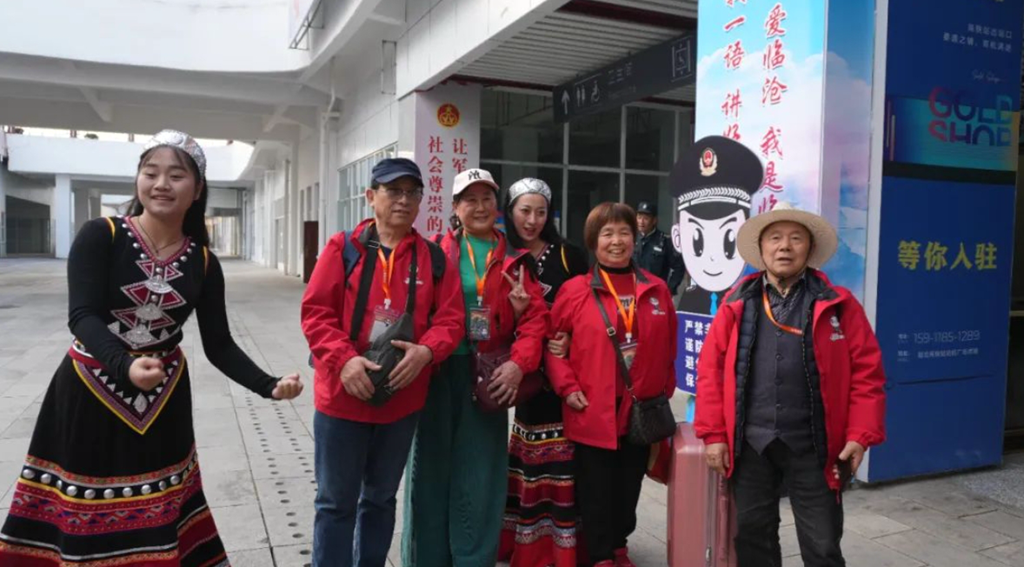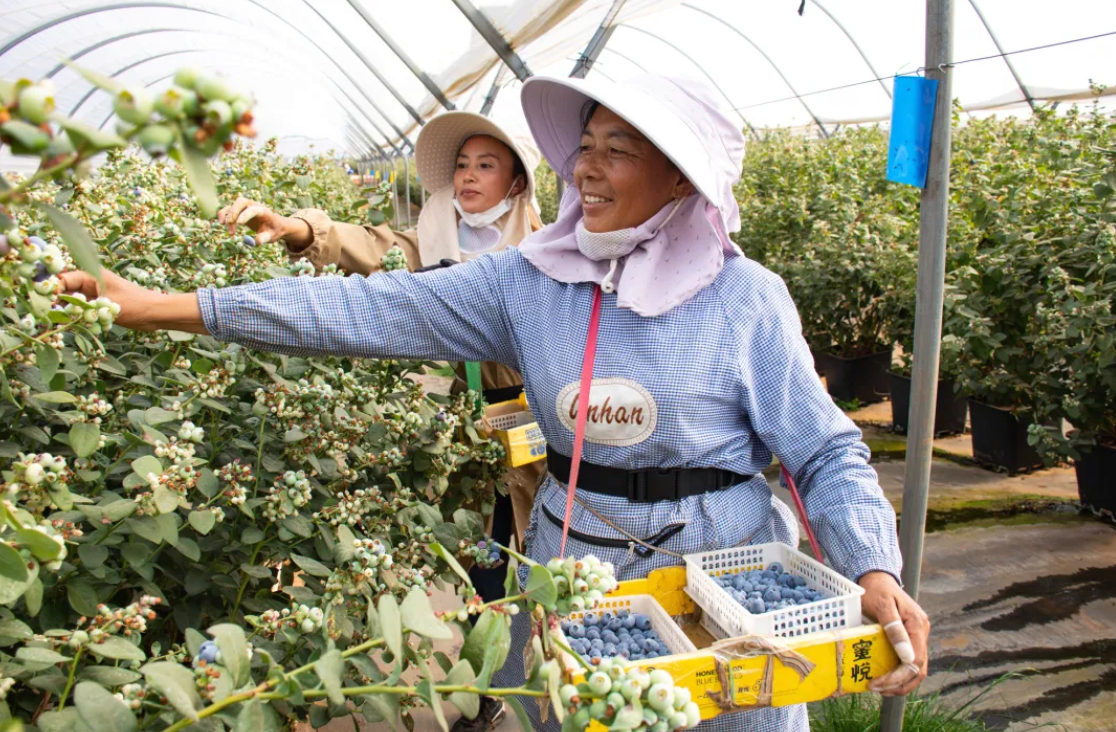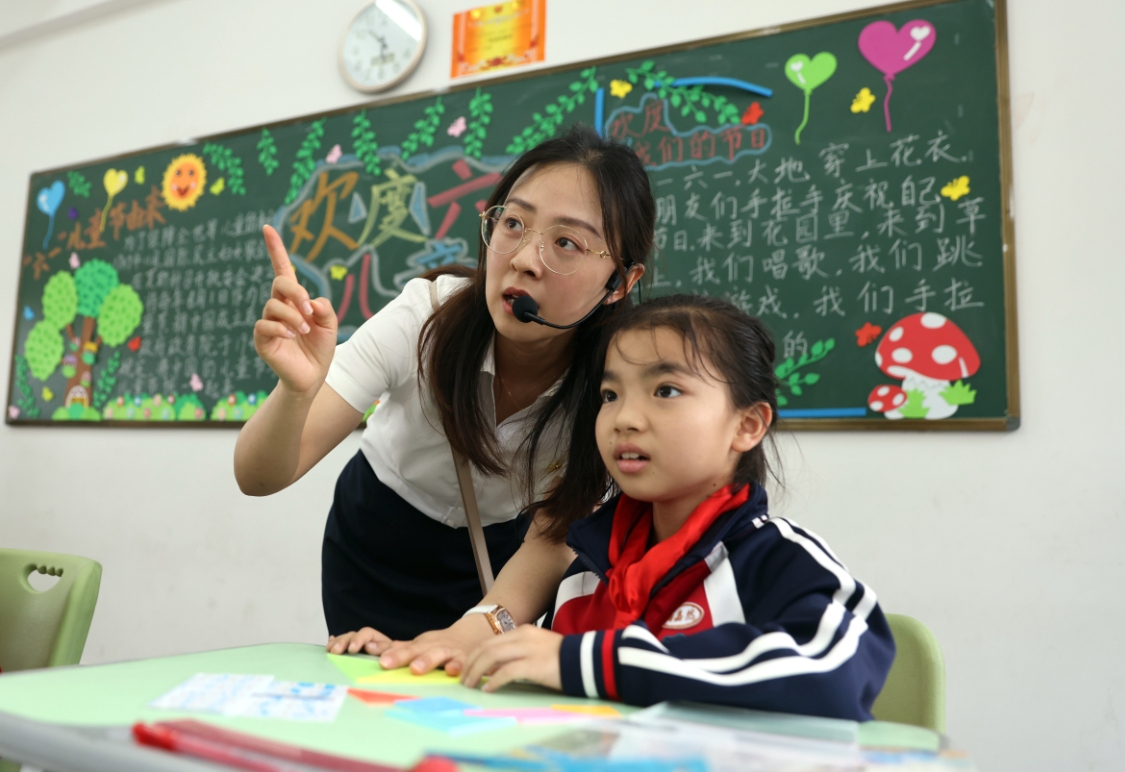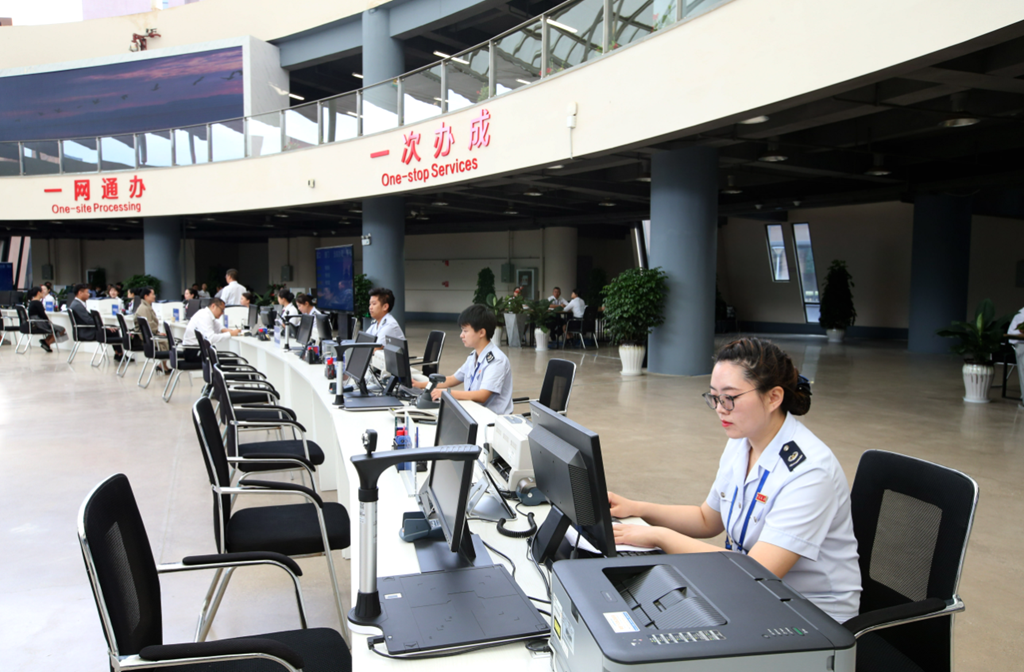Wages, childcare, leaves... Here are keys for China to boost consumption
China on March 16 made public a plan on special initiatives to increase consumption, as the world's second-largest economy moves to make domestic demand the main engine and anchor of economic growth.
The plan, issued by the General Office of the Communist Party of China Central Committee and the General Office of the State Council, aims to vigorously boost consumption, stimulate domestic demand across the board, and increase spending power by raising earnings and reducing financial burdens.
It also aims to generate effective demand through high-quality supply, improve the consumption environment to strengthen consumer willingness to spend, and address prominent constraints on consumption.

Senior residents take the Panda train to Yunnan's Lincang city, southwest China, for leisure. Photo/Yunnan Daily
Actions on income growth for urban-rural residents
Reasonable growth in wage income. China will implement employment supporting programs in key sectors, key industries, urban and rural grassroots areas, and small, medium, and micro enterprises.
Expanded channels for property income. The country will take measures to stabilize the stock market, strengthen strategic reserves, and build mechanisms to stabilize the stock market.
Measures to increase income of farmers. China will improve the income guarantee mechanisms for grain-growing farmers and the distribution mechanisms on land value appreciation. It will explore methods such as leasing, shareholding, and cooperation to fully use the farmers’ houses.
Overdue payments. Payments owed to enterprises—especially small, medium, and micro enterprises—will be "paid promptly and in full."
Actions on ensuring consumption capacity
Childbearing and child-rearing. China will explore and establish a childcare subsidy system.
Educational support. The country will offer more educational resources to urban areas with a net inflow of school-age populations.
Medical and elderly care security. It will refine the mechanism for reasonable adjustments to basic pension-insurance benefits. In 2025, China will increase the financial subsidy standards in basic pension and basic medical insurance for urban and rural residents.
Basic livelihood for the needy. The country will strengthen dynamic monitoring of low-income populations and implement tiered, categorized aids. It will improve the assistance system in basic livelihood.

Farmers harvest blueberries in a greenhouse of a fruit company in Mengzi, southwest China's Yunnan province. Photo/Yunnan Daily
Actions to upgrade services and benefit people
Services for the elderly and children. China will enhance aging-friendly modifications across society.
The country will boosting consumption on daily life servicee, expanding cultural, sports, and travel consumption.
For ice and snow-related consumption, it will launch an enhancement plan for ice and snow tourism.
China will broaden unilateral visa-free policies for tourists from more countries, expanding pilot opening-ups in telecom, healthcare, and education.
Actions for renewal of major consumption
Trade-in programs on consumer goods. China will leverage funds from ultra-long-term special government bonds to support local governments in expanding the scope of consumer goods trade-in initiatives. This will promote green and intelligent upgrades in major durable goods such as cars, home appliances, and home furnishings.
Demands on housing consumption. The country will sustain efforts to stabilize the real estate market and reverse its downturn. It will renovate the urban dilapidated areas to unlock the demand potential in both essential and upgraded housing.
Car consumption chain. China will launch pilot reform in auto distribution and consumption systems. It will expand after-sales consumption in areas such as car modification, leasing, motor sports, and RV camping.

A primary teacher offers one-to-one coaching to a pupil in Yunnan, southwest China. Photo/Yunnan Daily
Actions for enhancing consumption quality
Focusing on commerce, logistics, and cultural tourism, China will make categorized policies to improve service quality and build more Chinese service brands.
Development of new consumption types. The country will implement the enhancement initiative on digital consumption, while cultivating high-quality e-commerce.
It will align the standard and certification systems between domestic and international trade.
Actions for improving consumption environment
Rights to rest and leave. China will strictly implement the system on paid annual leaves, prioritizing its implementation as a key for trade unions to safeguard workers' rights.
Trustworthy environment for consumption. The country will launch a three-year campaign to optimize the consumption environment.
Urban and rural facilities for consumption. It will further implement the county-level commercial development initiatives and the "Thousand Markets and Ten Thousand Stores" upgrading program. It will further build up the county-level centers for logistics distribution and rural logistics terminals.

One-stop services are offered to business owners in Kunming, southwest China's Yunnan province. Photo/Yunnan Daily
Actions and measures to streamline and optimize
Reduction of consumption restrictions. Departments across Chinese regions will promptly eliminate unreasonable restrictions on consumption based on their actual conditions, avoiding "one-size-fits-all" approaches and arbitrary escalation of restrictions.
China will encourage auto consumption and others to shift from purchase management to usage management, phasing in measures to guarantee car-purchase needs for carless families who have long been unsuccessful in license plate lotteries.
The country will better manage the negative list of market access. Focus on sectors such as environmental protection, health, safety, quality inspection, and fire prevention, it will eliminate market entry barriers. This will foster a stable, fair, transparent, and predictable business environment.
Source: People's Daily; Trans-editing by Wang Shixue